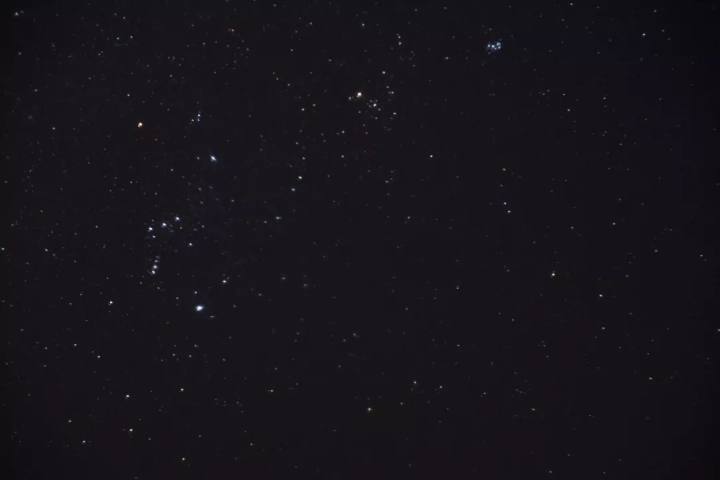Zhi Xing|Reaching for the Stars—Astronomy Zhi Xing Field Trip
Issue date:2019-01-10
In this issue, Astronomy Zhi Xing members shared their experience attending a Star Party in Anji, Zhejiang Province.
Who are we?
Astronomy Zhi Xing was founded by a group of astronomy lovers at UWC Changshu China. It aims to share knowledge about astronomy with both the UWC and local communities and inspire curiosity. Members of Astronomy Zhi Xing regularly exchange understanding and knowledge on various topics such as constellations, our Solar System and stars. We also discuss how astronomy links different cultures together, such as Chinese and western star maps. In addition, We attend or host activities that help broaden people’s perspectives on astronomy. Ultimately, our goal is to inspire curiosity about everything around us, which is the foundation of a healthy way of life.
Compared to the short human lifespan, stars have existed since the dawn of the universe. When you stand on earth and gaze upon them across vast distances, they in-turn look at you from the cold interstellar space in silence. No matter how spectacular your life is, it is but a flash of bright yet brief light across the sky. Even millions of years of human history are like a night-blooming cereus in the eyes of the universe.
From December 1st to 2nd of 2018, our Astronomy Zhixing group members (Oliver, Stephon, Jichen, Alice, Coco, and Vivian)attended the second annual Star Party (hosted by Hangzhou Astronomical Society) in the vast bamboo forest of Anji County, Zhejiang Province. This mountainous region boasts one of the best astronomical viewing conditions in the southeastern area of China. The event attracted over 500 enthusiasts not only from the Yangtze River Delta area but from all over the country. It was indeed a carnival for astronomy lovers.

The bamboo forest of Anji
When we reached the mountaintop, the fog was still quite heavy. We could see the vibrant greenery of the bamboo forests against the hazy silhouette of the distant hills. While admiring the beauty of such tranquility, we began to worry: fog as heavy as this would be ominous for astronomical observation. Another observer consoled us with the suggestion that the weather might clear up in the evening given its unpredictability. At least we had a silver line of hope.
In the afternoon, after visiting a sophisticated gallery of astronomy equipment, we enjoyed high-quality seminars from professionals as well as experience-sharing sessions from seasoned amateurs.

Equipment displayed during the event
The first speaker Huang Hui shared his precious experience with planetary photography. Wen Zhiping from Changhsu, Jiangshu then presented a fabulous talk on automated systems for remote astronomy photography.

Professor Gou's Lecture on "Dark matter and Dinosaurs"
The seminar that impressed us the most was entitled “Dark matter and Dinosaurs”. It was presented by Gou Lijun from the National Astronomical Observatories of China (NAOC). Theoretically, dark matter’s existence is probable but undetectable. It accounts for a large portion of the universe’s mass, and yet does not belong to any known type of matter. Even after extensive research and calculation, we still cannot experimentally verify or deny its existence. Similarly, dark energy is a type of energy that drives the expansion of the universe, the exact composition of which is still unknown. This field, therefore, requires significant in-depth research. While the goal of this seminar is to give us a preliminarily understanding of these concepts, it has already stimulated our thinking on future research topics. For example, how do we test and verify the existence of dark energy? And what benefit will it bring to our daily lives?

Group photo of all event participants

Group photo of all participants from our Astronomy Zhi Xing
Star Observation
As nighttime fell, we began to search for an ideal observation location. Everyone had assigned tasks, including testing and moving the heavy Dobson and Newtonian-Reflector telescopes outdoors. Oliver set up his camera to take photos of the constellations. Jichen and Coco quickly set up the 12-inch Dobson telescope and started searching for targets. Other team members assisted Stephon in assembling the Newtonian-Reflector. We could clearly observe M31 (Andromeda Galaxy), M42 (Orion Nebula) and M45 (Pleiades). Our sophisticated equipment attracted the curiosity of many bystanders.

A sky full of stars

Southeast sky, M42 (Orion Nebula) and M45 (Pleiades)
As midnight approached, cold wind gusts from the reservoir hit our faces with a mixture of chill and dampness. They seeped through our down jackets into our bodies and froze our exposed faces and fingers. No longer able to feel our limbs, the only thing we could do was to persevere.
As we laid on mats facing the sky, Oliver and Jichen taught us how to spot the various constellations that we had learned during Zhi Xing lectures, such as the Orion Nebula, the Pleiades, and the Andromeda Galaxy. At the same time, we were hoping to catch the faint flashes of meteor showers across the sky.

Enduring the coldness while observing the stars
To our disappointment, thick cloud formation had covered the entire sky and blocked all the stars by 2 am. There was nothing else we could do other than packing up.
This trip has taught me that astronomical observation is neither easy nor romantic. It requires patience, tenacity, and persistence to keep exploring our world, not only on earth but also in the boundless universe. Moreover, it forces you to skillfully turn what you have learned in theory into practice.
Night Sky Protection
It is becoming more and more difficult to clearly see stars and the Milky Way. The causes are not only because of air pollution but more so due to light pollution. With rapid modern industrial development, brightly-lit areas continue to spring up in areas that were once pitch dark. The situation is made worse by factors such as the unscientific design of street lights and the overconsumption of electricity. In large cities, it has become almost impossible to see stars. Night sky protection areas may be the last places people can observe stars. This is a warning to all of us and should ring alarm bells. I am saddened by the comparison of night skies in Suzhou and Anji. We need more people to join the movement to protect our night skies. As UWC students who uphold the mission of creating a sustainable future, we are committed to doing our best to contribute to this effort. Our Astronomy Zhi Xing group is very honored to invite the nation’s authority on night sky protection - the China Biodiversity Conservation and Green Development Foundation, to host a GIF (Global Issues Forum) at UWC in March. The goal is to focus attention on light pollution and enhance awareness of night sky protection among students and faculty.
Gazing upon the vast Milk Way from below, you are acutely aware of your own insignificance. Stars dot the immense dome of the sky, moving from a few scattered ones along the perimeter to converge toward a brilliant white silk belt as if some celestial god has accidentally left it behind. The night sky shines brightly and looks disarmingly close, awaiting only for you to look up, and reach for the stars.
Translated from the Chinese article by Vivian Gu, FP
English translation: Oliver Wang DP1
Photos: Oliver Wang DP1










